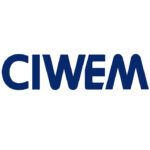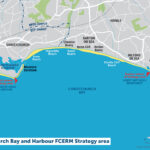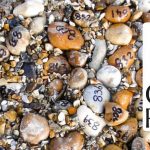
A short update on eco-engineering initiatives taking place within the SCG-SCOPAC region, from Lucy Sheffield, Coastal Environmental Engineer at Coastal Partners
MARINEFF Project
One of these initiatives is the MARINEFF (MARine INfrastructre EFFects) Project, which is a project funded by INTERREG and the European Regional Development Fund that aims to increase biodiversity on coastal infrastructure by producing proven concrete eco-engineering solutions that provide natural habitats and are easily incorporated in development. Both Bournemouth University and the University of Southampton are partners in the cross-channel project.
Bournemouth University have already deployed 150 artificial rock pools in Poole Harbour and the Isle of Wight; the pools will provide attachment surfaces for sessile species and shelter for grazers. Southampton University are looking at Oyster Prisms designed to attract the settlement of native oyster larvae/spat, to kick-start self-sustaining oyster reefs.
For further information please visit www.marineff-project.eu/en/marineff-project
Coastal eco-engineering is all about incorporating benefits for wildlife and people into the built environment. But to be successful, frank dialogue and collaboration between different industries and sectors is essential. The role of key people in driving through inclusion of ecological enhancements in both design and construction cannot be underestimated.
MARINEFF is a cross-channel project focused on increasing biodiversity on coastal infrastructure by producing eco-engineering solutions that can be easily incorporated in development. All the solutions are manufactured using known materials and construction techniques to keep costs reasonable. The technologies developed will be made available to companies and local authorities involved in coastal development. The project started in 2018 and results are already being measured at the test modules.
Project highlights so far:
- Four bespoke eco-engineering modules designed and 200 units manufactured.
- A robust, biologically attractive, waste shell concrete has been developed.
- The modules include:
150 artificial rock pools – already deployed at Poole Harbour and the Isle of Wight, the pools will provide attachment surfaces for sessile species and shelter for grazers.
36 breakwater blocks – modified surface texture enhances the capacity for marine species colonisation while the cubic structure maintains a focus on stability and ease of use.
30 oyster prisms – designed to attract the settlement of native oyster larvae/spat, to kick start self-sustaining oyster reefs.
3 boat moorings – designed to provide mooring sites for boats while promoting reef-like, sheltered habitats for commercially important species such as lobster.
Want to know more? The project produces quarterly newsletters of the latest results.
- Read the May 2021 newsletter (and back issues) at www.marineff-project.eu/en/resources/
- Subscribe here to receive future MARINEFF newsletters.
We encourage you to become involved and share your thoughts on this topic. The first project conference will be held in September and, later this year, MARINEFF will be hosting its third webinar. We hope that many of you will join in the discussion. By signing up to the newsletters we will keep you informed of future events.
Coastal Partners projects
Other projects are being led by Coastal Partners, who are also progressing with a number of initiatives, incorporating biodiversity into Flood defences through bioengineering.
One of the most exciting, is the construction taking place at the moment on the North Portsea Island Scheme. Bespoke Ecoformliners have been designed and are being installed to support UK intertidal species. These are the first in the country to be tested. The sea wall integrates texture to encourage colonisation of biodiversity onto the wall itself, increasing asset resilience and creating habitat which is not present on traditional smooth walls

Bespoke Ecoformliners have been designed and are being installed on the North Portsea Island Scheme
Through the coastal group, information is being shared between the projects to learn lessons and formulate best practice.










